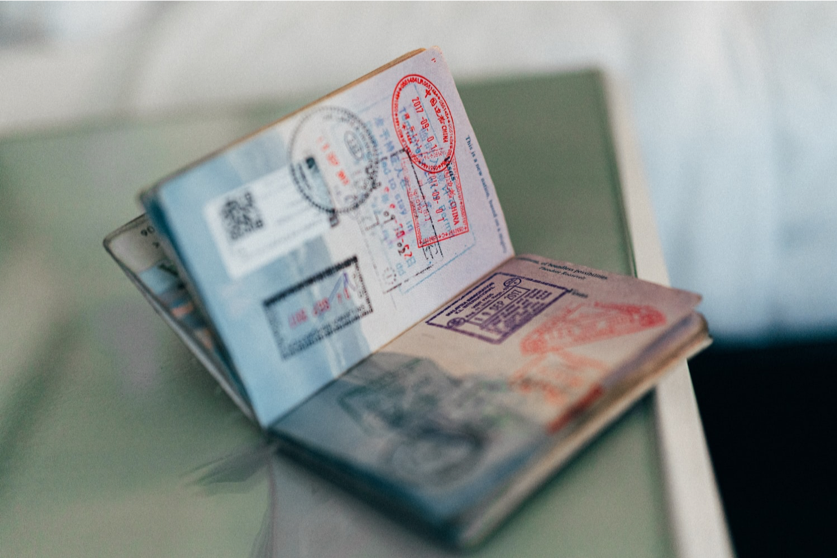By Keira Brennan, Third Year, Biomedical Sciences
The public is divided on their thoughts about vaccine passports, trust in the UK government’s COVID-19 response and beliefs surrounding vaccine-caused blood clots, a University of Bristol survey has revealed.
In March 2021, the University of Bristol and Kings College London surveyed 2,210 adults, between the ages of 18 to 75, on new COVID-19 concerns in the UK. Upon completion, the collected data was weighted to reflect the true proportions of different societal groups within the UK population.

Vaccine passports
It was revealed that the UK public has concerns about COVID-19 vaccine passports, with 39 per cent believing those without one will be discriminated against. 33 per cent were not sure and 28 per cent believed no discrimination would occur.
One in four people believed that vaccine passports would negatively affect their civil liberties, although half of the public did not. More people held this belief in ethnic minority groups (31 per cent) than in white ethnic groups (24 per cent).
Those from ethnic minority groups were also more likely than white people to think the government would use the passports as a surveillance tool (37 per cent versus 21 per cent). However, just under half of the people surveyed claimed the surveillance theory was false. Additionally, 44 per cent of the public think that vaccine passports will be available for purchase on the black market.
Professor Bobby Duffy (Director of the Policy Institute at King’s College London) said: ‘These results show that the government needs to tread carefully on vaccine passports and certificates, as significant proportions of the public have concerns to be addressed, including on discrimination, surveillance and fraud. This will require a lot of testing and communication over the next few months, particularly with some segments of the population, including ethnic minorities, who have high levels of concern.’
Analysis of data on Vaxzevria (formerly #COVID19vaccine AstraZeneca) puts risks of very rare blood clots in the context of benefits for different age groups and different rates of infection inform national decisions on vaccine roll-out 👉 https://t.co/crHJnVEksn pic.twitter.com/9XUQEt2OKO
— EU Medicines Agency (@EMA_News) April 23, 2021
Blood clots associated with the AstraZeneca Vaccine
On 7 April 2021, the European Medicine Agency’s safety committee concluded that ‘blood clots with low blood platelets should be listed as very rare side effects of Vaxzevria (formerly COVID-19 Vaccine AstraZeneca)’. Those under thirty are now being offered an alternative vaccine to AstraZeneca.
Before the recent official announcements regarding the AstraZeneca vaccine and rare blood clots, three in five people did not believe the vaccine caused them, with only one in eight (13 per cent) believing it. However, prior to the announcements more than a quarter (27 per cent) of those belonging to ethnic minority groups thought it to be true.
Older people were less likely to believe the blood clot claim. For example, just seven per cent of 55 to 75-year-olds believed that the AstraZeneca vaccine caused blood clots, compared to the 29 per cent of 18 to 24-year-olds.
Prof Duffy said: ‘…while six in ten people did not believe the AstraZeneca vaccine caused blood clots before recent official announcements, this is likely to change significantly, underscoring the need to keep being clear with the public on the benefits of vaccination.’
Trust in the UK Government’s COVID-19 response
When asked about how the pandemic experience has affected their trust in the UK government, twice the number of people said their trust had decreased compared to those with increased governmental trust. However, when specifically asked about the vaccine rollout and associated communications, 30 per cent of the public said their trust in the government had increased versus 19 per cent saying it had decreased.
There was a divide between political standpoints with almost half of Conservative voters (49 per cent) having increased trust in the UK government following vaccination rollout, contrasted with 17 per cent of Labour voters. Similarly, just 27 per cent of Conservative voters said the overall pandemic experience has increased their trust in the UK government versus just 15 per cent of Labour voters.
Understanding the second wave: COVID-19 antibody testing in Bristol
Bristol University’s impact on the world’s response to COVID-19, one year on from the first lockdown
Dr Siobhan McAndrew (Senior Lecturer in Quantitative Social Science at the University of Bristol) said: ‘The public are overall highly favourable towards the vaccination rollout – but a very high level of vaccine uptake is needed to ensure we can mix safely again. Health communication needs to keep adapting to the priorities and concerns of the remaining priority groups, which are successively younger, more questioning of authority, and more ethnically diverse.’
The findings of the research highlight the need for evidence-based communication to be altered to address the current concerns of the public.
Featured Image: Epigram / Julia Riopelle (Canva)
What is your stance on the following COVID-19 concerns?








